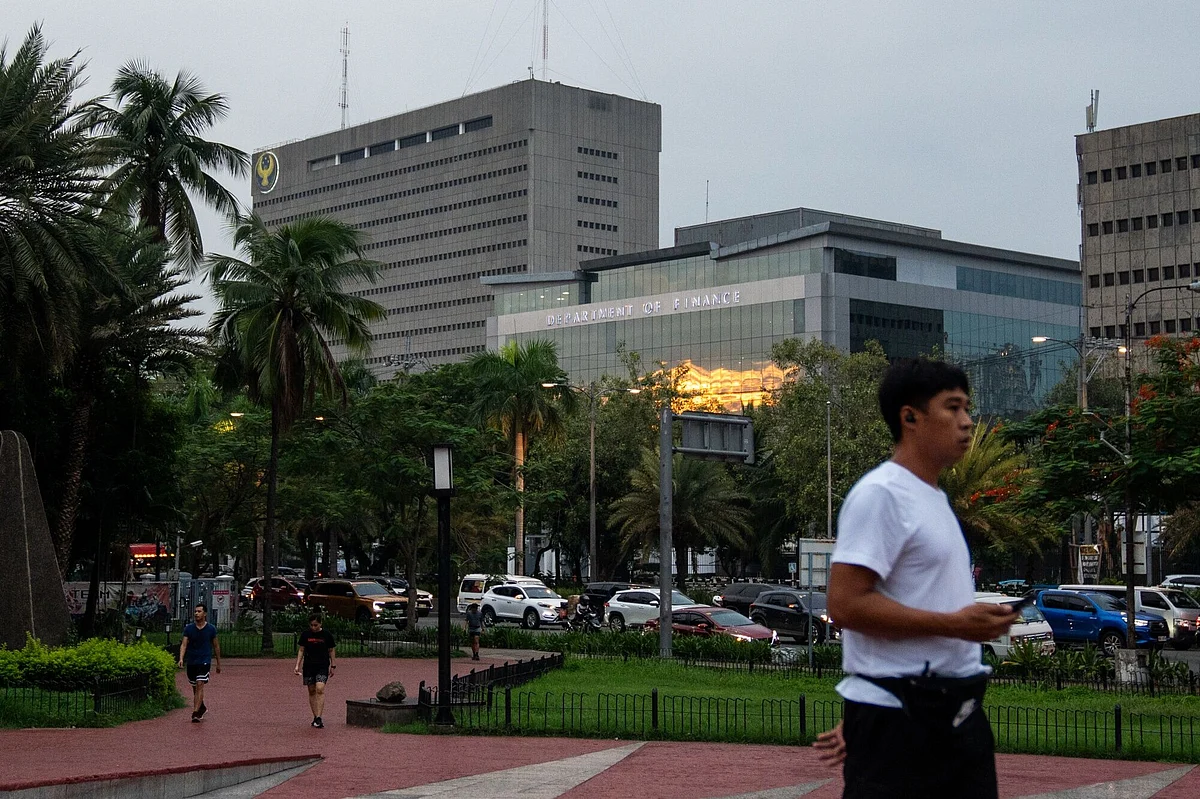Philippines cuts rate, signals more easing on trade turmoil
Bangko Sentral reduced its target reverse repurchase rate by 25 basis points to 5.5%

The Philippine central bank cut its key interest rate and signaled further monetary policy easing this year, moving to support confidence and growth as markets are whipsawed by changing US plans to impose global tariffs.
The Bangko Sentral ng Pilipinas cited a challenging external environment as it reduced its target reverse repurchase rate by 25 basis points to 5.5 per cent on Thursday, a move seen by 26 of 28 economists in a Bloomberg survey. Two predicted it would extend a pause in easing.
Global markets were pummeled after President Donald Trump unveiled tough new tariffs, though the 17 per cent rate set on US imports from the Philippines was lower than for neighbors Indonesia, Malaysia and Vietnam. Asian markets rallied today after Trump announced a 90-day pause on the new levies, with most countries instead being taxed at a base rate of 10 per cent, even as he raised duties on China to 125 per cent.
“Like the rest of the world, we’re looking at slower growth, but unlike the rest of the world, we’re looking at lower inflation,” Governor Eli Remolona said at a briefing in Manila.
“On balance, the more manageable inflation outlook and the risks to growth allow for a shift toward a more accommodative monetary policy stance,” he said.
Price gains had already been slowing in the Philippines, and the central bank now forecasts risk-adjusted inflation of 2.3 per cent in 2025, compared with a 3.5 per cent prediction in February. It pared its 2026 projection to 3.3 per cent from 3.7 per cent.
Even without the pause in tariffs, Remolona said the Philippines was relatively well positioned because it depends less on trade than do many big countries, and faced one of the lower announced tariffs.
“So it will be disruptive to us, but not as disruptive to some of the major trading countries,” he said.
Still, there will be an impact.
“The Monetary Board noted the more challenging external environment, which would dampen global GDP growth and pose a downside risk to domestic economic activity,” Remolona said, noting that further cuts will be data-dependent. “The BSP will continue to take a measured approach in deciding on further monetary easing.”
The Philippine central bank last week said that uncertainty over global economic policies and their impact on the domestic economy has “increased significantly” even as inflation slowed to a five-year low in March.
On the inflation front, there could be increases in transport charges, meat prices, and utility rates, Remolona said. “Downside risks are linked to the continuing effects of lower tariffs on rice imports and the expected impact of weaker global demand.”
The Philippine policymakers unexpectedly kept the benchmark interest rate unchanged in their February meeting after three consecutive cuts, although the BSP last month reduced banks’ reserve requirement ratio, freeing about 300 billion pesos ($5.2 billion) into the Philippine financial system.
Sign up for the Daily Briefing
Get the latest news and updates straight to your inbox
Network Links
GN StoreDownload our app
© Al Nisr Publishing LLC 2026. All rights reserved.